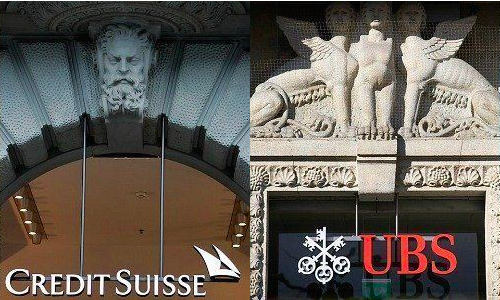Credit Suisse and UBS Chart Diverging Wealth Paths
Credit Suisse is sharpening its focus on the ultra-rich, especially in China where many businesses remain family-owned with investment banking needs. This contrasts with rival UBS, which is taking a different approach.
Following a restructured investment bank, questions emerged about how Credit Suisse would continue to deliver cross-divisional collaboration with the private bank to service the diverse needs of ultra-high net worth (UHNW) clients – a key proposition known as the «one bank» model.
With CS First Boston operating as a separate entity, the arms’ length distance between investment and private banking has now been further extended. Theoretically, this structural separation should not result in unaffected cohesiveness.
DNA
But Credit Suisse insists that collaboration will continue at a similar level, betting on its 17-year history in delivering the «one bank» model to have a lasting effect.
«At Credit Suisse, internal collaboration is in our internal DNA and a key differentiator to meet the holistic needs of our entrepreneurial clients,» Asia Pacific chief executive Edwin Low told finews.asia.
«Even after the restructuring and the formation of CS First Boston, we do not foresee a difference in this collaboration. Our UHNW clients will benefit from this partnership with CS First Boston which will give them unparalleled access to ideas and solutions.»
Sharpened Focus
In fact, effective coverage of the ultra-rich may be Credit Suisse's only option in private banking due to its reluctance to go downstream in the wealth spectrum, despite a dampened outlook for near-term economic and investment banking activities alongside the common prosperity drive in China.
«There is always a question about whether or not to expand wealth management towards the high net worth or affluent client segment, especially in the mainland China market,» said Benjamin Cavalli, head of wealth management APAC. «At Credit Suisse, we are sharpening our focus on UHNW clients.»
Divergent Rival
In contrast, rival UBS is looking to widen the base of Chinese clients it covers.
In August, the bank introduced a dedicated private clients team to cover individuals in Greater China with a net worth of around $1 million to $5 million. And just last week, it further widened the net to include affluent clients with a minimum net worth of $150,000 via a newly launched digital wealth platform in China onshore.
«As a global wealth manager, we know that one size does not fit all. We have the critical size and scale to specialize and tailor-make different product platforms for different types of clients,» said APAC co-head of wealth management Amy Lo. «We are looking more at the needs of clients rather than size.»
Short-Term Risks
In the short term, there are expectations for more pain to be felt globally from inflationary pressures, recession risk and geopolitical tensions. This is unlikely to be beneficial for fast wealth creation or investment banking demand.
If this persists long enough, Credit Suisse’s «one bank» model could experience more turbulence ahead, on top of its fair share of low moments in recent years such as the collapse of family office Archegos.
Multifold Payoff
But in the longer term, Credit Suisse’s bet could result in a multifold payoff, beyond just early positioning to capitalize on the next cycle of economic expansion.
The region’s ultra-rich are renowned for their tendency to trust themselves with self-directed investing often proven to effectively generate returns in a low-interest rate environment. But if banks are able to support them during tough times – especially their businesses – there could be lasting benefits, most importantly being the potential to become a trusted advisor in Asia.
«Credit Suisse is taking a long-term view of China and we see a huge potential in selling wealth management products to the UHNWIs in the world's second-largest economy,» Low added, underlining that the securities joint venture bought out in September would play a vital role in the bank’s strategy.




























